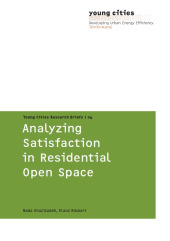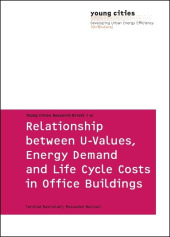Water Demand Management
Water End Use Measurements and Water Consumption Patterns in Tehran Households

Format: 14,8 x 21,0 cm
Publishing year: 2013
The project “Young Cities – Developing Energy Efficient Urban Fabric in the Tehran-Karaj region” under the direction of the TU Berlin is part of the BMBF funded program: “Research for Sustainable Development of the Megacities of Tomorrow”. In the project exemplary solutions for the growing region Tehran-Karaj in Iran have been developed. The inter 3 – Institute for Resource Management heads the dimension of action: “Water & Wastewater Management” and was in charge of the development of integrated and sustainable approaches for water supply and sanitation in the region. This document summarizes the results of the work package “Water Demand Management: Consumption Patterns and Efficiency of Water Saving Measures”. The research was focused on possible ways of reducing domestic water consumption without cutbacks in quality of life. By reducing the amount of consumed drinking water and produced waste water, energy consumption is reduced as well. The challenge was that water consumption behavior in Iranian household was unknown. The project team has therefore decided to carry out water consumption measurements in some test households. This required the development of a non-intrusive measurement method which will meet the strong demand of Iranians to privacy. A measurement concept according the method of Flow Trace Analysis (FTA) was developed. The FTA method consists of a single data logger attached to the residential water meter. The data logger yields continuously the flow trace which could be disaggregated into the distinct end uses based on special characteristics of the flow trace. The concept was implemented and tested in three sample households. The first impressions of consumption patterns in Tehran Households are discussed.



